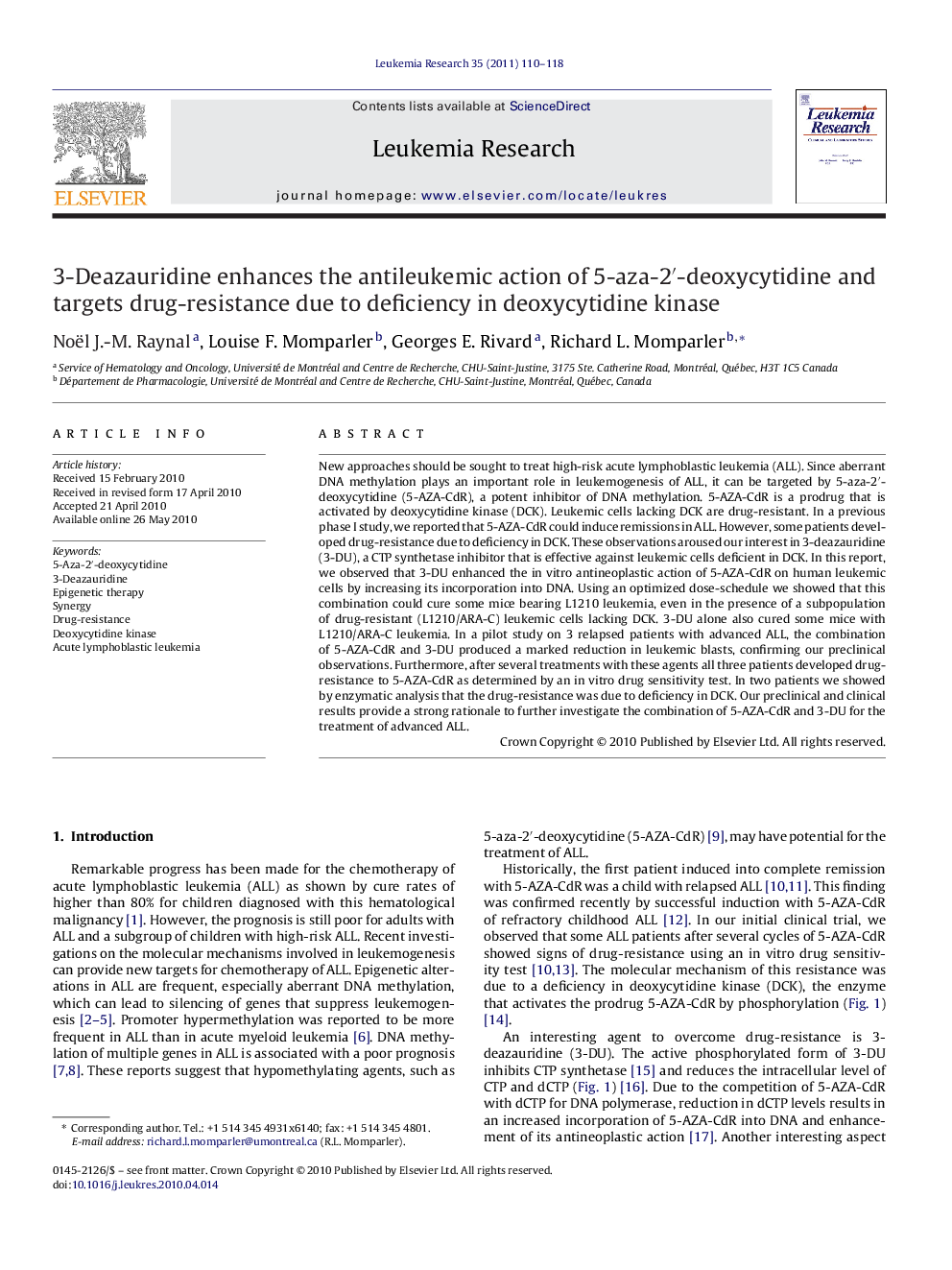| Article ID | Journal | Published Year | Pages | File Type |
|---|---|---|---|---|
| 2137473 | Leukemia Research | 2011 | 9 Pages |
New approaches should be sought to treat high-risk acute lymphoblastic leukemia (ALL). Since aberrant DNA methylation plays an important role in leukemogenesis of ALL, it can be targeted by 5-aza-2′-deoxycytidine (5-AZA-CdR), a potent inhibitor of DNA methylation. 5-AZA-CdR is a prodrug that is activated by deoxycytidine kinase (DCK). Leukemic cells lacking DCK are drug-resistant. In a previous phase I study, we reported that 5-AZA-CdR could induce remissions in ALL. However, some patients developed drug-resistance due to deficiency in DCK. These observations aroused our interest in 3-deazauridine (3-DU), a CTP synthetase inhibitor that is effective against leukemic cells deficient in DCK. In this report, we observed that 3-DU enhanced the in vitro antineoplastic action of 5-AZA-CdR on human leukemic cells by increasing its incorporation into DNA. Using an optimized dose-schedule we showed that this combination could cure some mice bearing L1210 leukemia, even in the presence of a subpopulation of drug-resistant (L1210/ARA-C) leukemic cells lacking DCK. 3-DU alone also cured some mice with L1210/ARA-C leukemia. In a pilot study on 3 relapsed patients with advanced ALL, the combination of 5-AZA-CdR and 3-DU produced a marked reduction in leukemic blasts, confirming our preclinical observations. Furthermore, after several treatments with these agents all three patients developed drug-resistance to 5-AZA-CdR as determined by an in vitro drug sensitivity test. In two patients we showed by enzymatic analysis that the drug-resistance was due to deficiency in DCK. Our preclinical and clinical results provide a strong rationale to further investigate the combination of 5-AZA-CdR and 3-DU for the treatment of advanced ALL.
